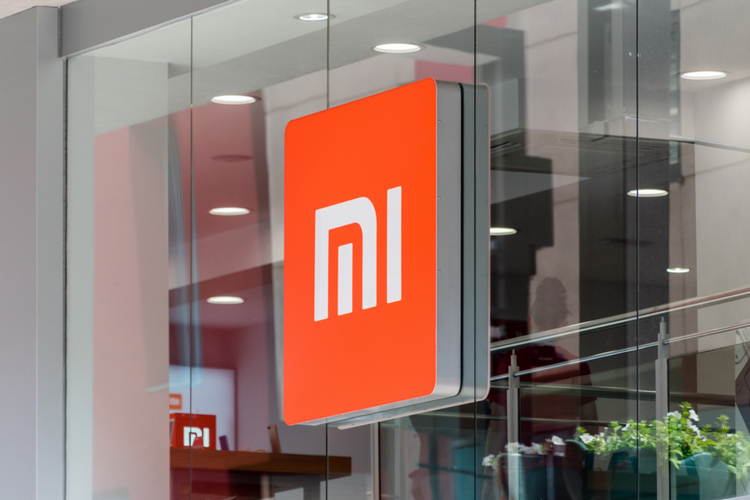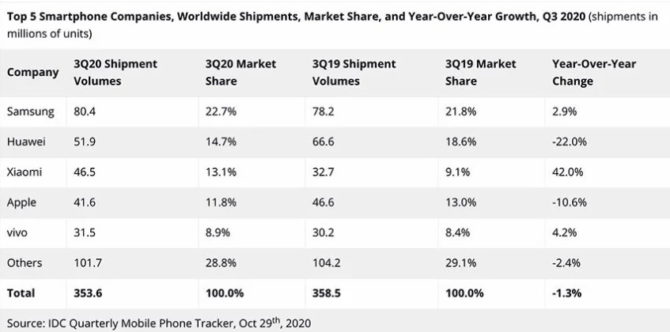
The third quarter saw the smartphone market recover after taking massive hits due to the COVID-19 pandemic earlier this year. Samsung again came out on top, surpassing Huawei (whoso business suffers at the expense of the US restriction) by a substantial margin, as per the latest IDC report. Also, Xiaomi managed to beat Apple to become the third best-selling phone maker in the world.
Huawei became the best-selling phone maker earlier this year, but Samsung has sold close to 30 million more phones in Q3 2020. Samsung’s growth, as per the report, is fueled by a boost in smartphone demand. It not only saw a huge demand for the Note 20 series in the US. But, “the strong performance in the under $250 price segment and the online channel where its M series models did quite well” is also a key reason for its 22.7% market share.

As you can see in the chart above, IDC reports that Xiaomi shipped 46.5 million units as compared to Apple’s 41.6 million units in the third quarter this year. Which phones did it sell the most? As per the reports, Xiaomi’s low-end portfolio, especially the vast Redmi 9 series, was the main proponent in India and China. The high-end Redmi K30 Ultra and Mi 10 Ultra also contributed to its 42% growth in Q3 2020.
Also, the report reveals that Apple’s shipment dropped 10.6% year-on-year but it was already expected due to the delay in the iPhone 12 series launch. The new iPhones do usually go on sale in Q3 2020 but the launch, as well as sale, is delayed this year. The Cupertino giant still saw strong sales for its more affordable iPhone 11 and iPhone SE (2020) this quarter. Apple accounted for 11.8% market share globally.
This enabled Xiaomi to beat Apple for the first time and become the third best-selling smartphone makers across the globe. It is followed by Vivo and other phone makers, who add up to the rest of the 38% market share. The market is stabilizing quickly but the push for 5G is only adding pressure on the OEMs and channels, as per IDC’s Ryan Reith. He believes there’s a lack of consumer demand for 5G and the marketing campaigns backing the technology are rampant.










